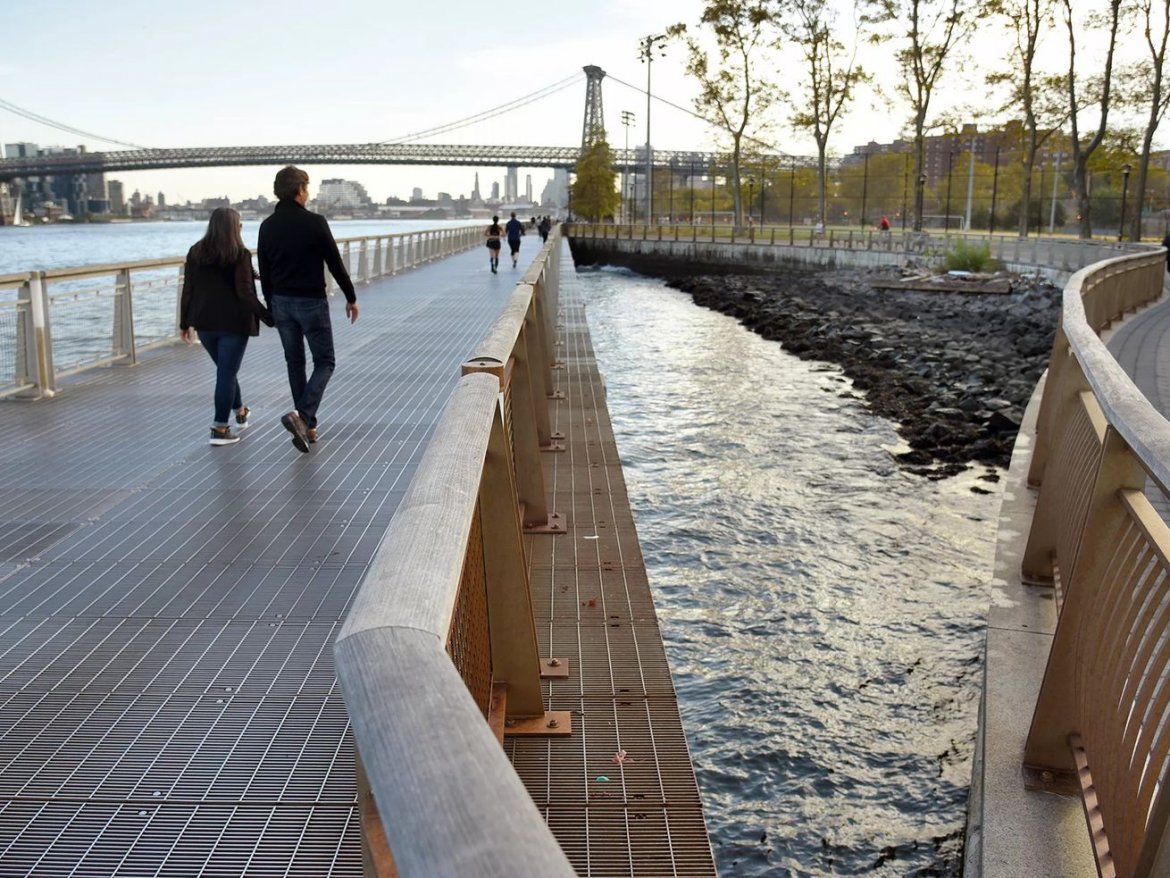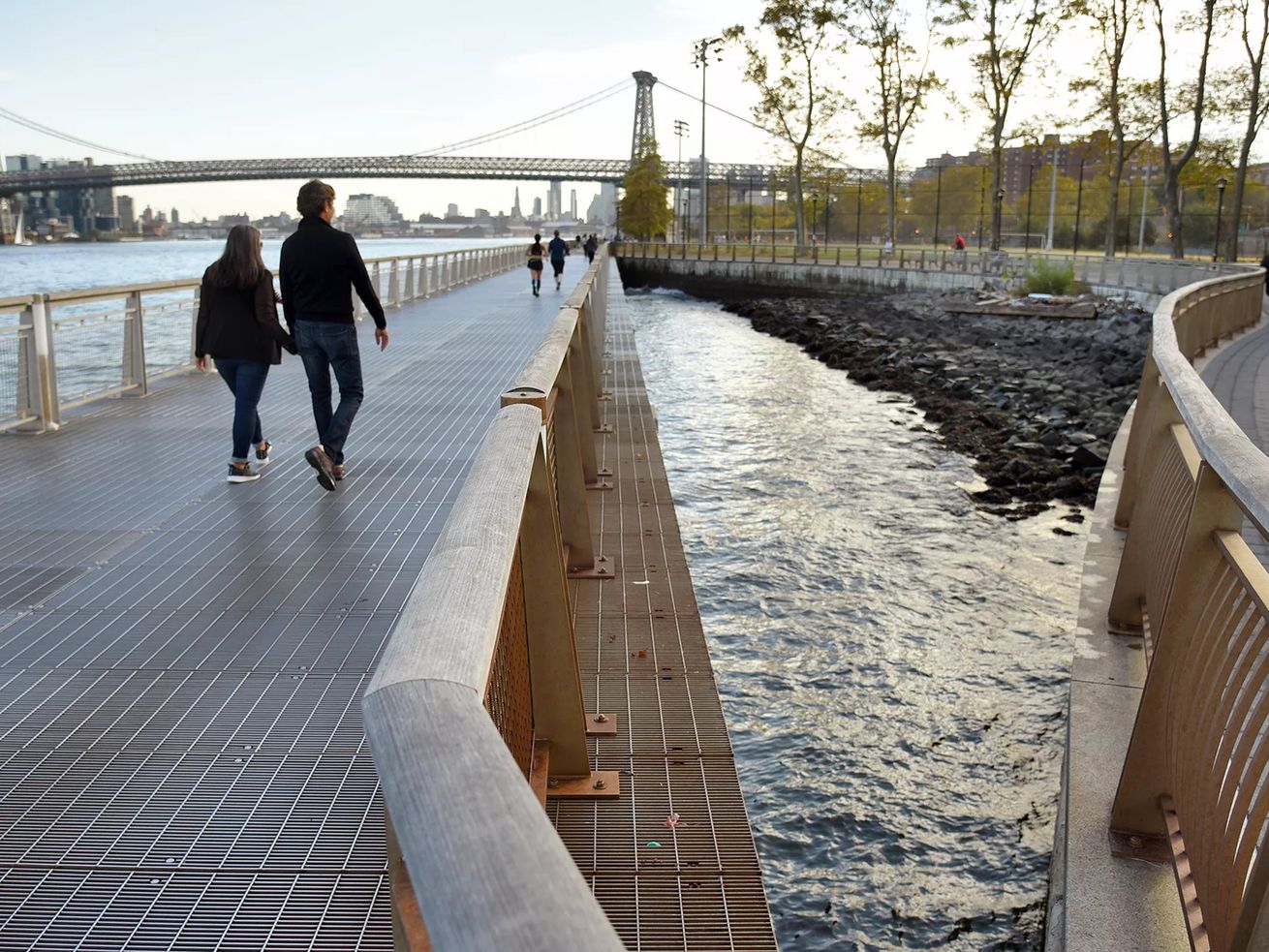
Flood protection plan for East River waterfront heads to full City Council vote

Lawmakers will cast a final vote on the controversial plan on Thursday
A controversial plan to remake a stretch of Manhattan with flood protections has one last hurdle to clear before the $1.45 billion proposal can push forward.
The East Side Costal Resiliency (ESCR) project passed the City Council’s land use committee on Tuesday, clearing the way for a full Council vote on Thursday. Amid the committee vote, the trio of Councilmembers who represent the area—Carlina Rivera, Margaret Chin, and Keith Powers—unveiled a package of city commitments that “make implementation of this plan better than what was originally presented,” said Rivera.
“What is clear is that this community did not just want a flood protection plan,” Rivera said during Tuesday’s vote. “We needed a plan that would help address environmental injustice even as we transform our coastline to defend our homes and East River Park itself from climate catastrophes.”
The land use review of the ESCR project got off to a rocky start after the de Blasio administration decided to revise 70 percent of a previous version despite years of community engagement on fine tuning that proposal. Irate elected officials and locals demanded greater transparency from the city. Department of Design and Construction Commissioner Lorraine Grillo shouldered the blame for the lack of communication at a January Council hearing over the new plan and pledge more city clarity moving forward.
But several concerns lingered, and after mounting pressure, the de Blasio administration announced plans to phase construction so that nearly half of East River Park will remain open throughout the three year construction timeline instead of closing the green space entirely.
Following an independent review by Dutch firm Deltares—jointly commissioned by Rivera and Manhattan Borough President Gale Brewer—the city also committed funds for a community advisory group similar to the one formed for the Gowanus Canal’s federal Superfund cleanup, published a technical hydraulics study on the latest proposal, and is mulling the feasibility of installing interim flood protections during construction—the project’s resiliency measures will not be operational until 2023.
The full project is slated for completion by 2025.
Now, as the effort nears the end of the approvals process, the details on a bevy of commitments were unveiled Tuesday. Among them are the Parks Department’s vow to revamp 17 nearby parks and Waterside Pier, open space improvements at six public housing complexes, and new protected bikes lanes in Alphabet City as an alternative route to the East River Greenway. The Department of Transportation plans to present bike lane study results to the community next year and will also study ways to reimagine FDR Drive.
Lawmakers who pushed the city for greater transparency and community investments lauded the deal but cautioned that there is still much work to be done.
“While this agreement checks off many of the boxes that we had fought for, there is still more to do to make sure this is the best project that we get for the Park’s future,” said Brewer. “I look forward to seeing this project through.”
Love where you live
Be Heard at Go Home NY
Be heard! Leave your apartment, condo, and coop building reviews at Go Home NY! Know a building's managers are awful? Have the inside line on a perfect building? Anything in between? Express your voice and be heard. Leave a review at Go Home NY.


